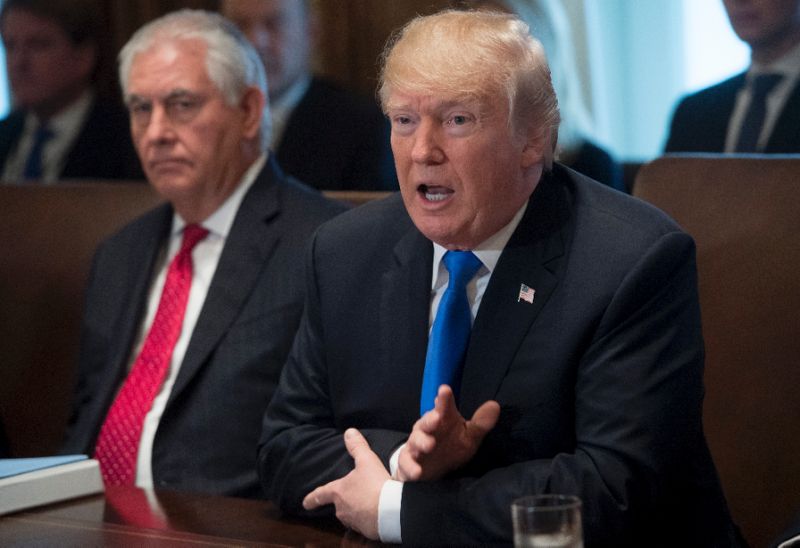Pakistan has summoned the U.S. ambassador in a rare public rebuke after President Donald Trump threatened to cut aid to Islamabad over its “lies” about militancy.
David Hale was asked to attend the foreign ministry on Monday night, after Islamabad responded angrily to the U.S. President’s allegations that it provided safe havens for militants — the latest dispute to rock their alliance.
A U.S. embassy spokesman confirmed Tuesday Mr. Hale met officials but had no comment on what was said.
There was no immediate response from foreign ministry officials. But Prime Minister Shahid Khaqan Abbasi convened a National Security Council meeting later Tuesday attended by the powerful military chief and other senior military and government officials, a foreign ministry spokesman said.
Mr. Trump used his first tweet of 2018 to tear into Islamabad.
“The United States has foolishly given Pakistan more than 33 billion dollars in aid over the last 15 years, and they have given us nothing but lies & deceit, thinking of our leaders as fools,” he said.
“They give safe haven to the terrorists we hunt in Afghanistan, with little help. No more!”
Pakistan hit back swiftly, saying it had done much for the United States, helping it to “decimate” Al-Qaeda, while getting only “invective & mistrust” in return. The angry comments came from its foreign and defence ministers.
Mr. Trump’s tweet offered no further details. He first hinted at cutting aid to Pakistan in an August speech charting his Afghan policy, and administration officials including Vice President Mike Pence have also intimated cuts in recent months.
Observers said that without further information the tweet could just be more hot air between the allies, whose often fractious relationship has taken a nosedive under Mr. Trump.
“Trump is in the habit of issuing hardline statements which only spoil the atmosphere and violate diplomatic niceties,” analyst Hasan Askari told AFP, adding that Pakistan should seek more information.
“It will only add to the acrimony that has crept into the bilateral relationship after Trump’s arrival in the White House,” another analyst, Imtiaz Gul, told AFP.
After the September 11, 2001 attacks on the United States, Washington forged a strategic alliance with Islamabad to help in its fight against militancy.
But Washington and Kabul have long accused Islamabad of supporting militant groups including the Taliban, believed to have links to Pakistan’s shadowy military establishment which aims to use them in Afghanistan as a regional bulwark against arch-nemesis India.
Islamabad has repeatedly denied the accusations, lambasting the U.S. for ignoring the thousands who have been killed on Pakistani soil and the billions spent fighting extremists.
On Tuesday China, which has stepped up a multi-billion dollar economic investment in Pakistan, spoke out in its defence, with a foreign ministry spokesman praising its “outstanding contribution to the global cause of counter-terrorism.”


